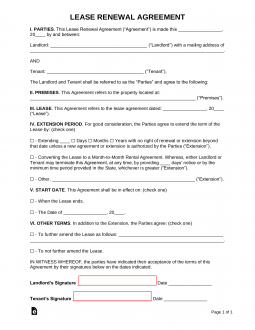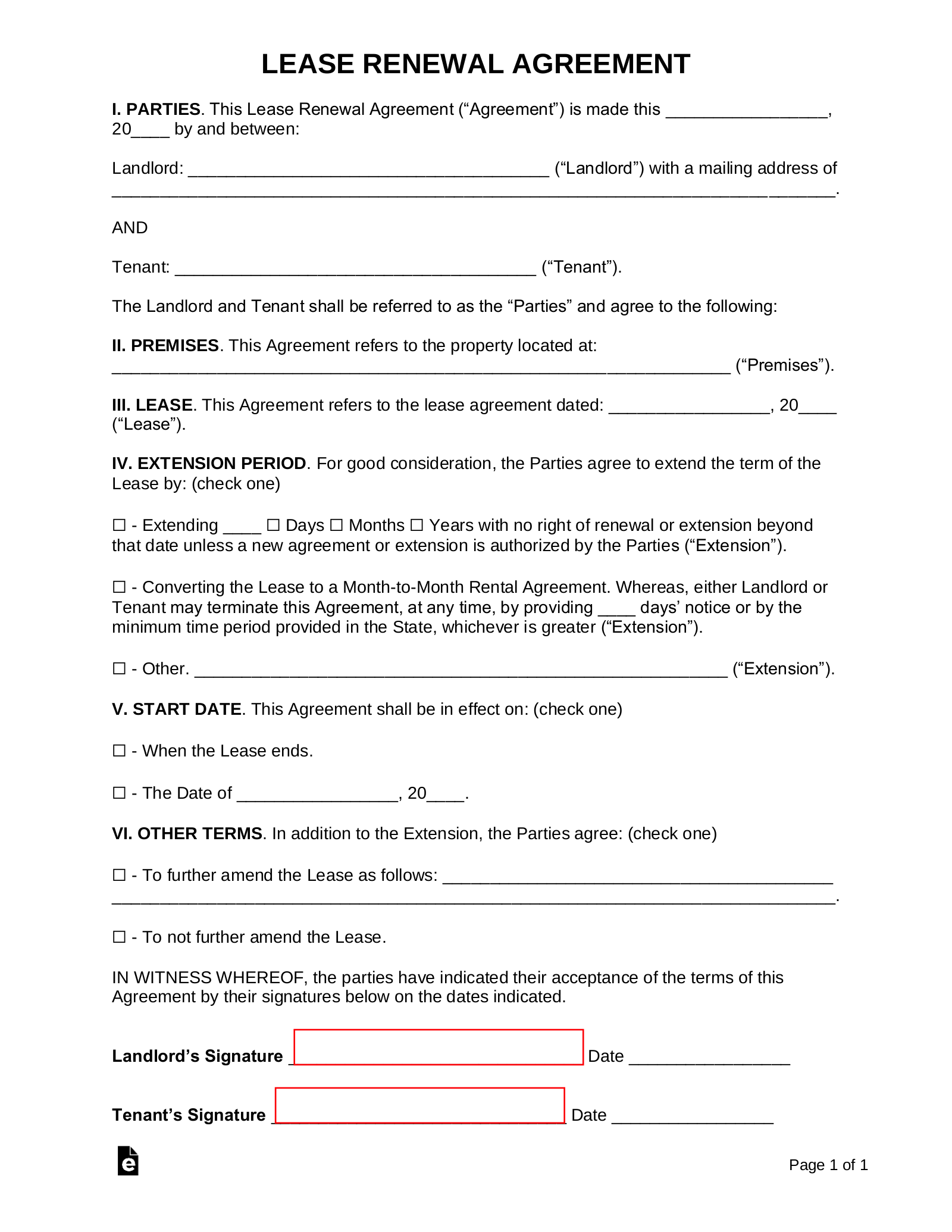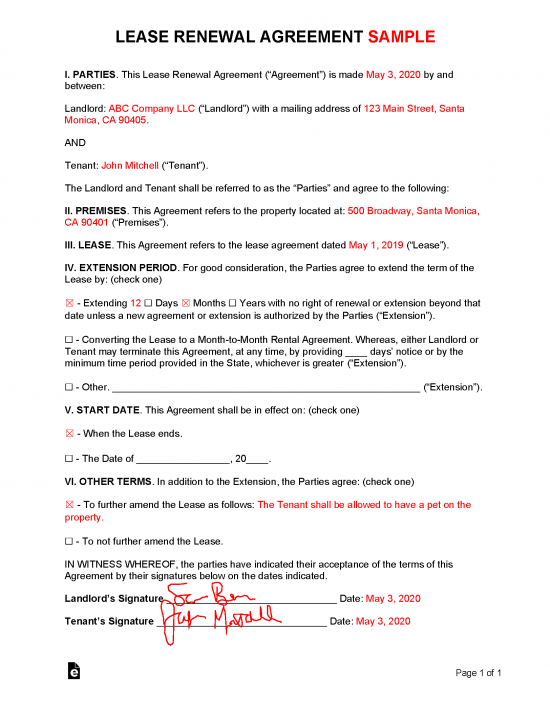Updated August 30, 2023
A lease renewal allows a tenant to prolong a current lease past its scheduled end date. The renewal is only legally binding after it has been signed by both the landlord and tenant. In addition to the extension, the renewal may also make other changes to the lease such as increasing the rent or add rules of the property. If the landlord and tenant are in good standing with one another, a renewal letter is commonly sent to the tenant within 30 to 90 days before the original lease terminates.
May be used for residential and commercial property.
Table of Contents |
How to Renew a Lease (4 steps)
1. Write Notice

Depending on the landlord’s preference, a simple lease renewal may be sent to the tenant or the landlord may decide to re-write an entirely new lease agreement to the tenant. If the landlord decides on the latter, a letter should be sent to the tenant stating the following:
LETTER OF INTENT TO RENEW LEASE
[Landlord’s Name]
[Landlord’s Address]
[Landlord’s City, State]
[Landlord’s Zip][Date]
Dear [Tenant’s Name],
It is our intention to renew your lease dated [Original Lease Date] that will end on [End Date of Lease]. You have shown to be a model tenant and would offering to renew your lease for an additional [Enter Term] at the monthly rental rate of [Enter Rent ($) Amount]
If you accept this offer, please contact our office by [Enter Date].
Sincerely,
[Landlord’s Signature]
2. Send Notice

It’s recommended to send the letter at least 30 days before the expiration date. The landlord may send the letter themselves or use websites like MailaLetter.com ($1.99 for 1-page).
3. Wait for the Tenant to Respond

The tenant will be required to respond within the timeframe outlined in the letter. Depending on circumstances, the tenant may decide to make a counter-offer to the landlord. If so, it may be better to schedule a meeting with the tenant to come to terms and come to a verbal agreement.
4. Write the New Lease
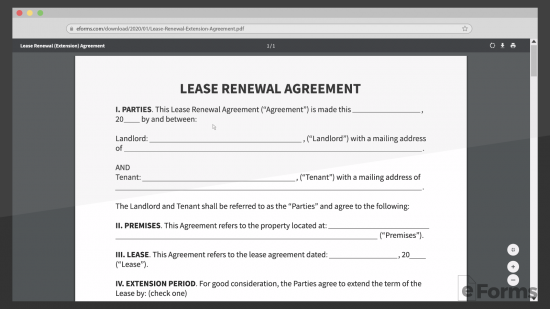
If the terms of the lease are mostly the same as the original, a simple 1-page lease renewal agreement may be signed by the parties. If the new lease has many changes, i.e. a tenant has changed, the landlord has changed, the tenant has moved to a new unit in the building, etc. a new lease agreement should be authorized amongst the parties.
Renewal vs. Extension
A renewal is treated legally as an entirely new agreement where an extension is simply prolonging the end date of the original agreement.
| Actions | Renewal | Extension |
| Extending the Lease Term | Recommended | Recommended |
| Increasing Rent | Recommended | Not recommended |
| Adding Terms & Conditions | Recommended | Not recommended |
Notice to Not Renew a Lease
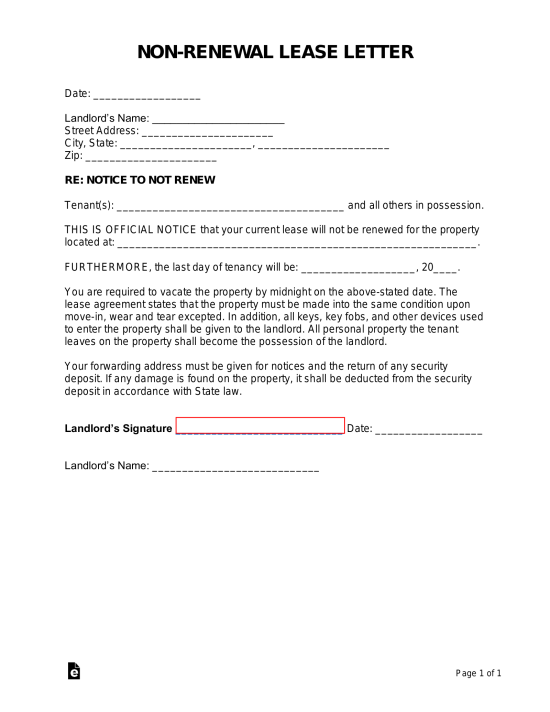 Lease Non-Renewal Letter – To inform a tenant that the landlord does not wish to renew the lease agreement.
Lease Non-Renewal Letter – To inform a tenant that the landlord does not wish to renew the lease agreement.
Download: PDF, MS Word, OpenDocument
Sample Lease Renewal Agreement
Download: PDF, MS Word, OpenDocument

